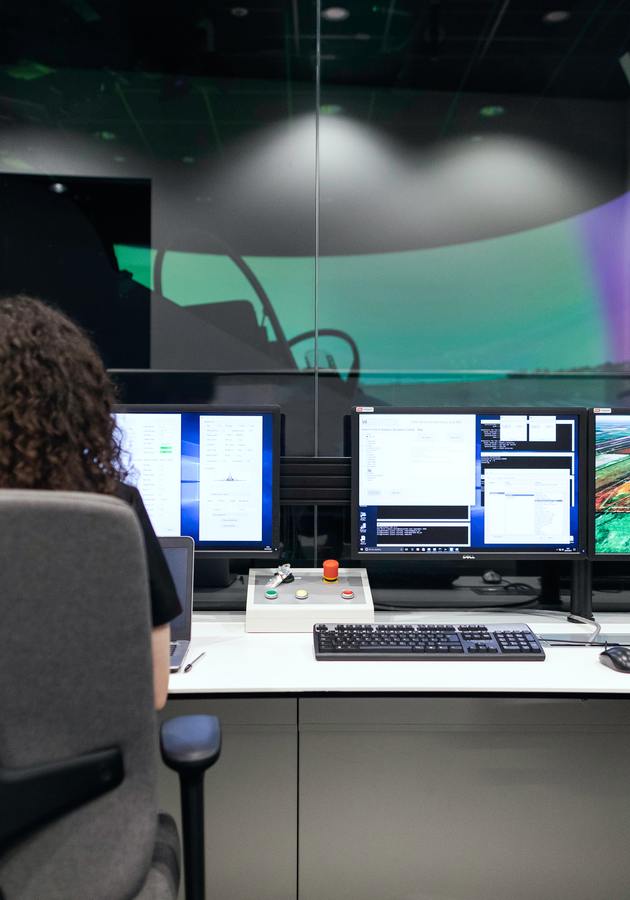'Steal like an artist' is a guide for anyone who wants to develop their creativity. In it, Austin Kleon assumes that, nowadays, no one else has 100% original ideas. Copying your favorite artists and getting inspired by them to start your works is cool and advantageous. The point here is to learn to combine ideas that already exist, thus creating a "new" thing! Have good influences and copy those you admire, but also learn to develop over time your own identity and originality. Could you copy some of Austin's ideas to our minds in this microbook?
You Do Not Need To Have Original Ideas
What is the first question you would ask your favorite artist if you were face to face with him? I do not know about you, but many people want to know where artists get their ideas from. That is one of the most frequently asked questions. If every artist were honest, there would be only one correct answer to that question: "I steal ideas."
Artists have a peculiar way of observing the world around them. Instead of judging what's right or wrong, they judge whether these things are valuable enough to be copied. All artists understand that no work is original. Each art is constructed of a preexisting art. The sooner you realize this, the more chances you have of improving your art and your creative process. Although this idea is depressing for some people, it can give hope to others. Get rid of the mentality that you need to have original ideas. Stop running from influences and allow yourself to be influenced by other people's ideas.
Each "new" idea is a combination of preexisting ideas. What you are today is a mixture of your interactions with life. No one will ever reinvent the wheel. There is nothing new under the sun. The only reason people will call anything original is that they are not familiar with the original. Stop fighting by trying to create unique ideas for your work.
An artist is a collector, but not all ideas are worth collecting. Despite being successful thieves, artists are demanding. Do not borrow any ideas that appear in front of you. Some ideas are valuable; others are not worth your time.
GIGO (Garbage in - Garbage out) is a computer concept. It means that whatever data you put on your computer is what you will get back. Our brains work similarly. We end up becoming what is around us. Your main task as an artist is to choose the ideas that you want to influence you and ignore the others.
The best way to improve your art is by choosing a mentor in the industry. Study it carefully. When you are sure that you have mastered what makes you a unique artist and what makes your art impressive, you are ready to go. Then find three people your artist loved and study everything about them as well. Then repeat this process. Make this a routine. Once you feel you have gone far enough, you are ready to begin your work. Using the process described above will make you feel part of a team.
Just because you left school does not mean you should stop learning. Education is everywhere, and if you want to be the best at what you do, every day should be learning days. To be better than all, advance more than them. Use Google to search for things you do not know. Buy books to build your library. Read books that inspire you. Visit the library and stay immersed. Whatever you do, do not stop learning.
Thoughts and ideas can reach us at the most inappropriate times and places. Carry a pen and a book to jot down your ideas. Record observations you make in a park, on the subway or in conversations. Have a file where you keep all the little notes that you "steal." Open your file whenever you need inspiration. You'll be surprised how a note that looks worthless can help you a lot!
Do Not Wait To Start Working On Your Art
Nothing kills creativity as much as procrastination. Start doing things while you wait to find out. Do not be an artist who hopes to learn who you are before you start working on your art. If you expect to find out who you are, you will end up waiting a long time. We can only discover ourselves when we are immersed in our creative work. Being afraid to delve into art is natural. It's okay to doubt yourself. This fear affects all artists. It even has a clinical name - the impostor syndrome, described as the 'inability to internalize achievements.' The impostor syndrome makes you feel like you do not understand what you are doing. Do not let it overthrow you. Every great artist suffers from the impostor syndrome. The key is not to let it get in your way.
At first, it may be that no one notices your work and knows what you are doing. But do not let this stop you. Act like you're the best artist of the genre. Act as if you were working on something great. Keep working and believing you until you see the light at the end of the tunnel. The world is like a big stage, and we are the actors. Turn your workplace into a theater. What you wear while working is your costume. Your tools are your work materials, and time is the script. Start acting!
One of the best ways to be creative is to use reverse engineering in the works of the artists who inspire you. Note that there is a big difference between plagiarism and copying. Plagiarism is trying to pass on the work of another person as if it were yours. The copy, in turn, has more to do with reverse engineering. It's like trying to dismantle a cell phone to find out how it works. Most of the things we learn, we learn by copying, as in kindergarten, where you needed to learn to write by copying numbers and letters of the alphabet. A systematic approach to reproduction will develop your creativity: choose who you want to copy and what / how you will copy, and you will be well on your way to mastering your art.
It happens that, at some point, every artist needs to stop copying his hero. Your creative work will begin to emulate their work. Emulation is built from imitation. It starts with the realization that we can not be like our heroes and that our work will be different from theirs. Fortunately, this difference is not a defect. We're just ourselves. The enlargement of your thoughts is a true emulation, from which creativity arises.
Write About Things Your Like
Have you sat for hours wondering how to write, paint or compose? You are not alone. Many young artists, especially writers, suffer from the so-called "lack of ideas."
Unfortunately, there is lousy advice for artists who are asking what to write: "Write about what you know! "Do not write about what you know. Write about what you like. Write the story you would like to read. It may seem strange, but is not that the reason to create a fiction? To distance ourselves from the grotesque realities of our world?
Think about your favorite movie, if it had a sequel, how would it be? Think about your creative heroes, if they were to create yet another masterpiece, how would it be? If all the creative people who inspired you were to collaborate on a project, what would it look like? You should be writing about it.
Forget The Computer And Work With A Notebook
Take time out of your laptop. Write notes by hand in a notebook. Use your hands to create something. It is very easy to get immersed and spend time in front of the computer. However, you need to remember that your laptop does not produce ideas.
While we certainly can not live without them anymore, there is a danger in relying on computers to provide us with everything. They steal our authentic feeling of being creators. They alienate us and push us away from our creative process. Sitting in front of your computer is not only choking your creativity, but also your health. You need to get back to basics: building things with your hands and your head.
No magic reaction happens when you use your hands to create. If you start drawing a line in a notebook, your brain starts moving instantly. You start thinking about how to make this drawing better, which rarely happens when you do the same thing on a computer.
If you have enough space in your workshop, install analog and digital work platforms. Fill your analog workstation with work tools like pens, markers, paper clips, and notebooks. When you get bored of working on the computer, work on your analog post. Sketch out your ideas, attach things to the wall, do things that do not involve electronics. You will be amazed at the influence this has on your creativity. If you feel you are starting to lose energy, go back to your digital workstation.
Rest Your Brain, Take Brakes
It is very difficult to overcome procrastination. At times, you find yourself doing several other things different from what you should be doing. Instead of blaming yourself for this, try to make your hobbies more productive.
According to the author, her experience as an artist and book writer has taught him that having a few different projects happening at the same time is a good thing. He states that when he feels tired of focusing on one project, he changes to another, and sometimes needs time off from all projects. Every creative person needs to rest their brains and not think of anything. Sometimes avoiding work is the best way to reorient your mind.
Share Your Work With Others
One of the greatest fears of artists is the fear of remaining unknown, obscure. There is no magic pill that will make everyone become a fan of your work. People will not notice you at first because they are too busy to pay attention to you.
Although this fear is a genuine concern, you should not worry about it, at least not at first. You will want to start appearing in the media once you have mastered your art and when you are producing an extraordinary job.
To remain unknown can be liberating. It gives you the freedom to make mistakes, to experiment and create different jobs. This freedom is lost the moment you become a known artist. There will be critics waiting to scrutinize everything you do and stakeholders who push you to produce better jobs. You will also have fans flooding your emails. Seize the unknown while you still can.
There is a straightforward formula. Produce great works and share. You can not skip any of these steps: 1. Create great things, and 2. Share with people. Creating great works requires a lot of practice and persistence. You will not become a Beethoven after only a few attempts to compose songs. You will not become a Da Vinci overnight. Practice and be persistent.
Sharing your work is very easy these days. You just need to put it on the internet and promote it. Obviously, you need to be open to sharing your work with others and learning the magic behind online marketing. Learn how to create a website and how to promote it using social networking and other internet tools.
When you show your work to others, you end up learning a lot in the process. The internet becomes more than just an ad place. It becomes an incubator of ideas. You will benefit by sharing your art.
However, if you are not comfortable sharing the details of your work, you do not have to do this. You can share many other things. A link to an interesting article, a funny meme, can show your fans a glimpse of your work. Just make sure you are visible and sharing. Sharing helps you connect with people who have interests similar to yours.
Being online motivates you to work hard, to create more things for your fans. When you are posting your work online, you want your next project to be better than the previous one.
Change, Travel, And Have New Experiences
A few years ago, if you wanted to meet creative people like you, you would need to change your city and sometimes even your country. Fortunately, this is no longer the case.
The internet has opened the world's geographical boundaries, and you do not have to move to connect with people you care about. It takes just a quiet place to work and a device that connects to the internet.
However, leaving the routine aside can bring you a lot of inspiration. If you can, leave your home from time to time and go somewhere different. Your brain has a strange habit of being very comfortable in familiar environments.
To keep your brain working in the best way, you will need to move from a comfortable environment to a different environment with people with a different culture. Travel revitalizes your brain.
The place of destination is a matter of personal preference and taste. However, you may find that going to a place with a horrible climate can help you a lot. Bad weather helps you spend most of your time indoors, working on your projects.
You may also want to move to a place where people are interesting and different from you. Find a place that recharges you spiritually, socially and physically.
The best thing about moving in these days is that your friends and colleagues are living in a place where you can always find them, the internet.
Be Nice And Treat Others Well
To survive and thrive, you need to be nice to your friends and master the art and science of ignoring your enemies.
Do you remember the principle "garbage in, garbage out"? It also applies to your relationships with people. If you are surrounded by people who have are not committed, you too will soon act like this. That means you need to be selective about the people with whom you connect online.
Surround yourself with people who inspire and motivate you, and the sky will be the limit. Learn from these people. Be curious to see what they are saying and what they are reading.
If you find you are the most talented person on your network, find another group.
In your journey to make connections on the internet, you can cross with opinions different from yours, some of them wrong, but do not try to correct them It is not your responsibility to correct anyone on the internet. Overcome the temptation to get into fights that are not yours. Otherwise, you will be caught in unproductive routines, of which it is difficult to detach. The only plausible way to show that someone is wrong is to create something that you think is right.
Often, when we commend one's work, we expect to hear a response from that person, receive recognition. It happens that people are busy and can not always respond to their fans' letters. The best way to deal with this is to not expect recognition from the people you admire. Give public praise to the work of these people, without expecting to receive something in return. Write an article about them and post on your blog, or retweet your tweets. Noticed or not, you will have done your part.
It may take time before someone recognizes the value in what you do. Unfortunately, there is not much to do about it. Stop searching for people's validation. Once you create your work and post it, it's not up to you to determine how people will react to it. Despite having spent months of sleepless nights working, this will come easy for some people. You will be very misunderstood and may even be cursed, but get used to it and move on. As long as you're doing what you love, you do not have to worry about what people say about you.
Sometimes you'll get your job done right. People will notice and will fill you with compliments. But in art, praises are not enduring. People will forget you. The compliments will end, and you will return to your solitary world full of doubts. In a few days, you may feel like giving up.
The best way to fight this is to keep a record of your achievements, by storing, for example, emails with compliments received during times when your work was very good. As you re-read these messages, you will feel relevant again. Try to do this, but be careful not to be stuck in the past.
Take Care Of Your Money And Be Productive
The media portrait of artists as carefree and party people is very distorted. If you try to live like the artists portrayed by the media, or will die very young, or will spend your time being very unproductive. Save your energy to be creative.
Instead of wasting all your energy on parties, do something to improve your life. Go to the gym, cook a healthy meal, sleep well to revitalize your brain, spend time with your family or take your dog for a walk.
Also, learn how to properly manage your money. You will not want to stress about your finances as this can poison your creativity. Do not let the idea of being an artist occupy your head. You need to be disciplined to live within your means. Take care of your money and do not buy things you do not need. Learn how to keep up with the money you have and do not surrender to the consumer culture.
It may take a while for your art to give you enough money to pay your bills. Keep your job until this is possible. A formal job not only maintains your lifestyle while you expect your art to be recognized, but it also gives you the opportunity to meet people and make connections. Learn from the people you know, steal your ideas and enrich your creativity.
The secret to balancing your formal employment with your creative work is to find a decent job with a decent salary, which gives you enough energy to work on your projects when you have free time. The worst thing a formal job can do to you is stealing your time, but that is rewarded for putting you into a routine. You can schedule your creative work for when you are free. Having a regular schedule is much more productive than having lots of free time. Creating a timeline is quite easy. Find out what time you are free to do your creative work and stay determined to finish during that time every day.
Final Notes:
Originality is overestimated. Today, increasingly, knowing how to create your referrals and appropriating recipes that have worked for others has become an essential skill for anyone looking for success. Understand the work of those who came before you, understand how and why it worked, and incorporate the best ideas into your day-to-day lives. Also, sharing your ideas with others has also become a key skill. To succeed, the important thing is to be able to combine ideas from around the world without losing your identity.
12min tip: Talking about creativity, how about checking our microbook 'Creativity, Inc'? We are sure you will not regret it!





























